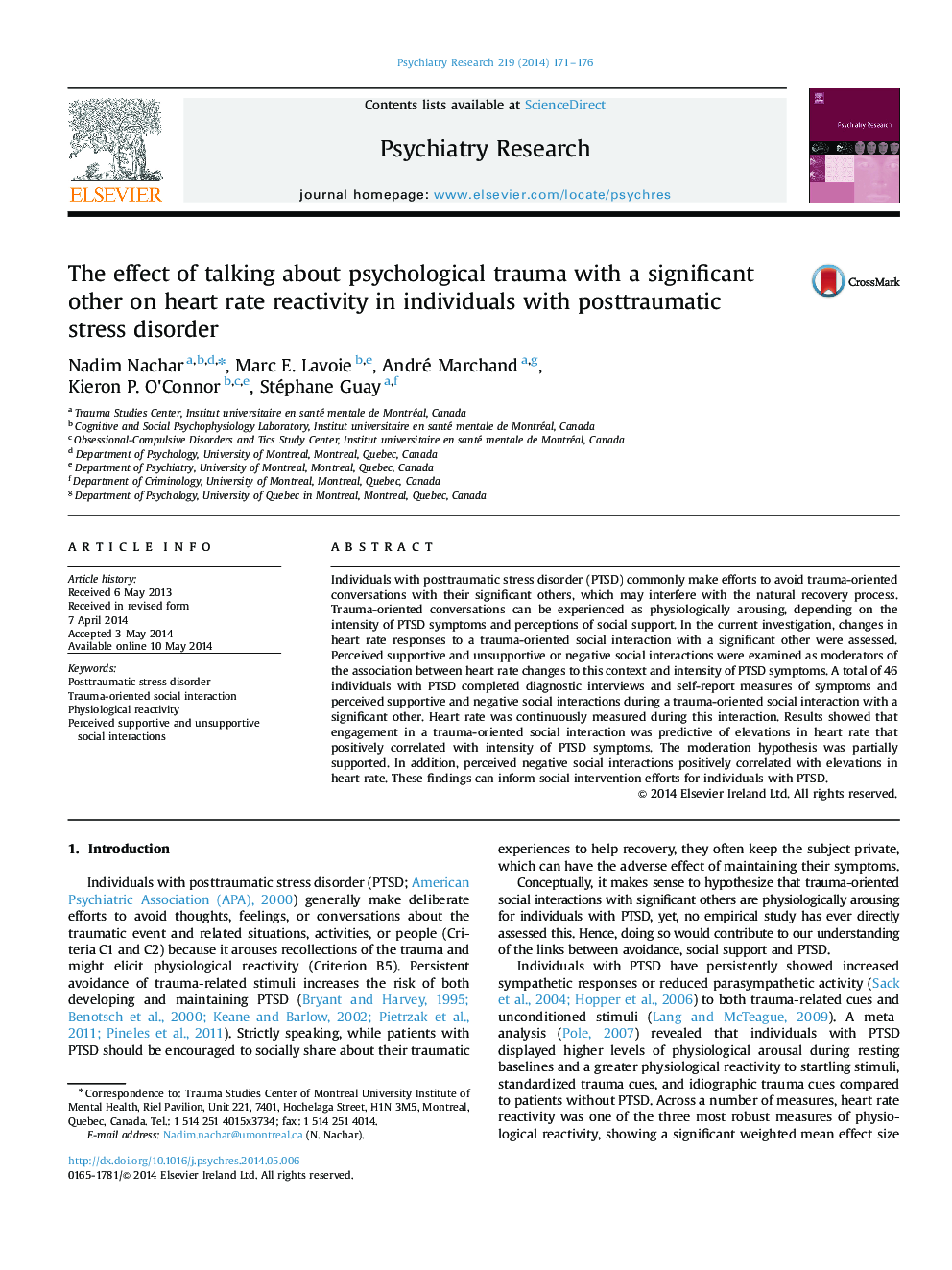| Article ID | Journal | Published Year | Pages | File Type |
|---|---|---|---|---|
| 332949 | Psychiatry Research | 2014 | 6 Pages |
Individuals with posttraumatic stress disorder (PTSD) commonly make efforts to avoid trauma-oriented conversations with their significant others, which may interfere with the natural recovery process. Trauma-oriented conversations can be experienced as physiologically arousing, depending on the intensity of PTSD symptoms and perceptions of social support. In the current investigation, changes in heart rate responses to a trauma-oriented social interaction with a significant other were assessed. Perceived supportive and unsupportive or negative social interactions were examined as moderators of the association between heart rate changes to this context and intensity of PTSD symptoms. A total of 46 individuals with PTSD completed diagnostic interviews and self-report measures of symptoms and perceived supportive and negative social interactions during a trauma-oriented social interaction with a significant other. Heart rate was continuously measured during this interaction. Results showed that engagement in a trauma-oriented social interaction was predictive of elevations in heart rate that positively correlated with intensity of PTSD symptoms. The moderation hypothesis was partially supported. In addition, perceived negative social interactions positively correlated with elevations in heart rate. These findings can inform social intervention efforts for individuals with PTSD.
